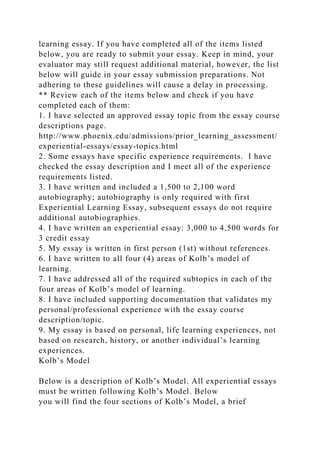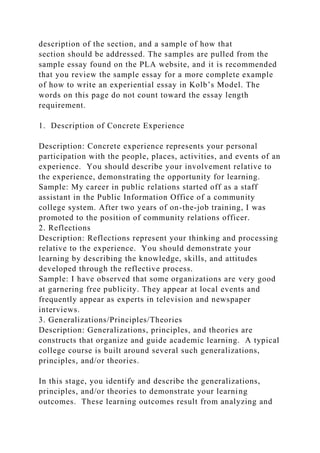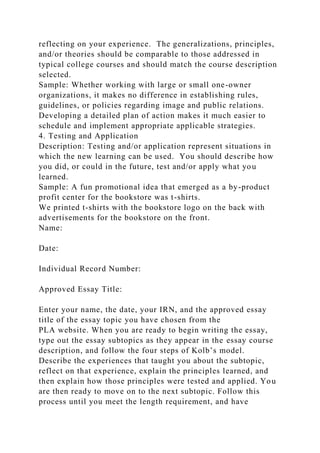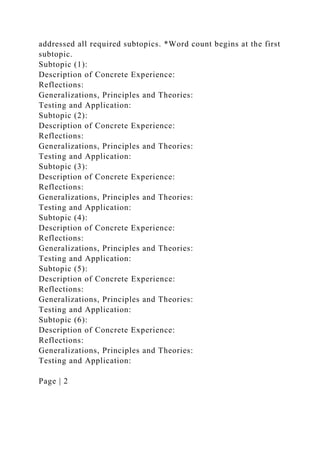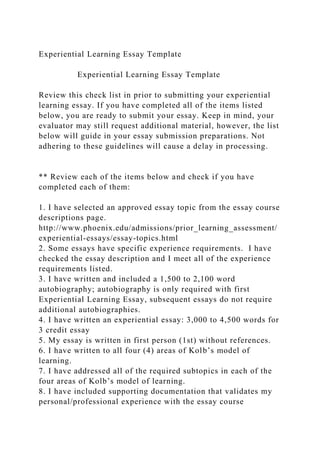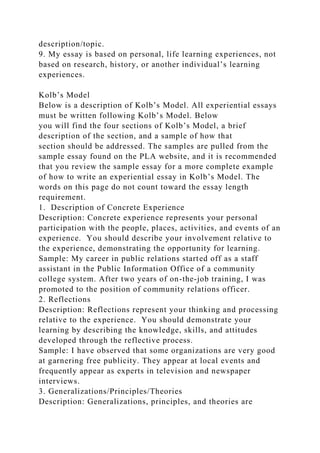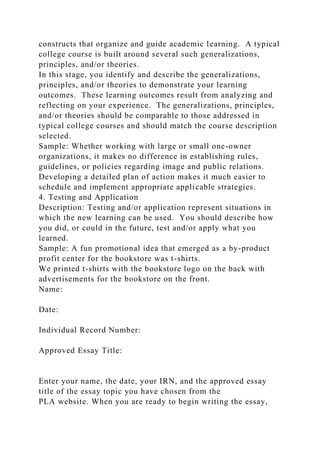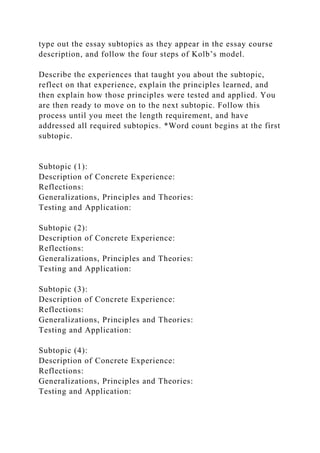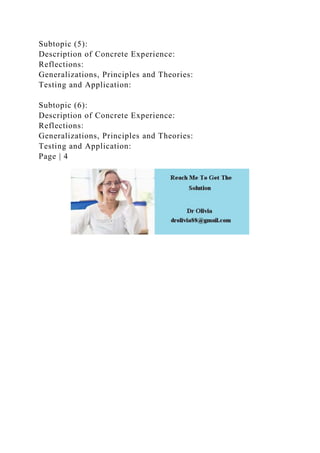Michael Smith's autobiography details his life from childhood in Long Beach, California, through a challenging youth marked by family divorce, struggles with substance use, and a transformative military experience in the U.S. Army. Following his service, he fulfilled his dream of becoming a police officer, enjoying a rewarding career in law enforcement until injuries forced his retirement. Now, he runs a private investigations company and pursues degrees in psychology to help police officers and veterans, while cherishing his family life with his wife Amanda and their rescued pets.
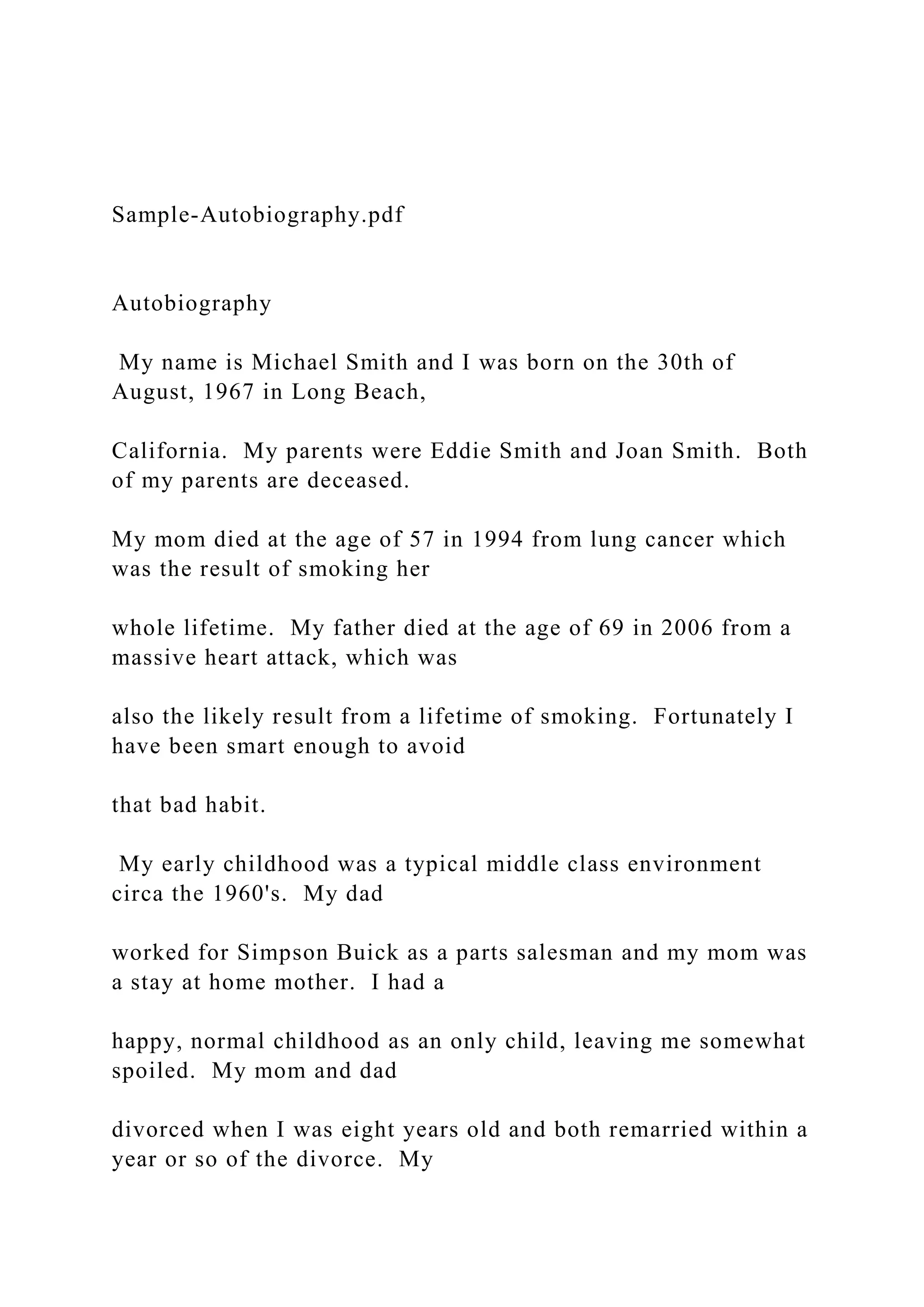
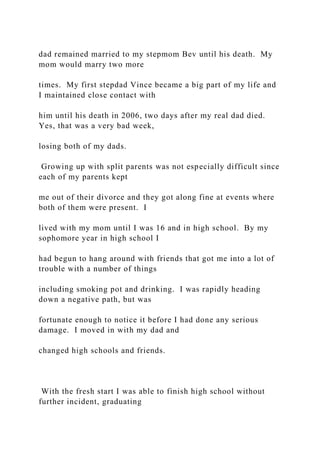
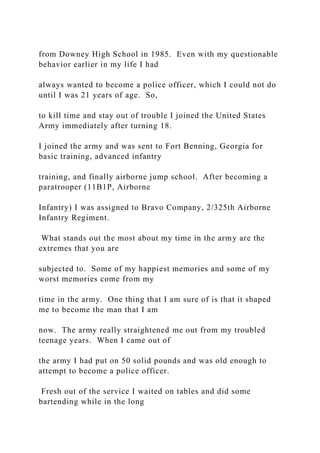
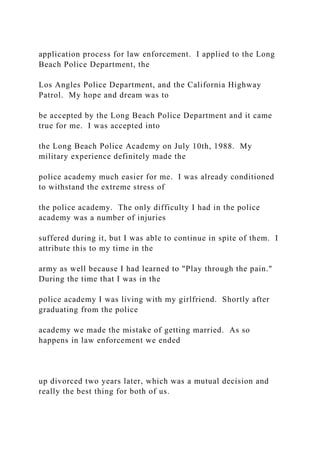
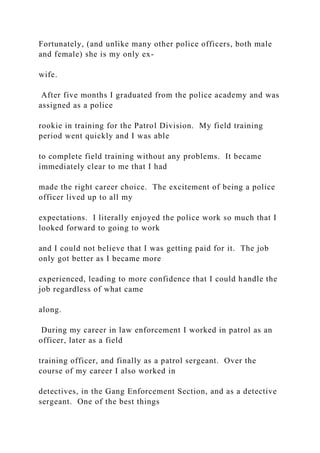
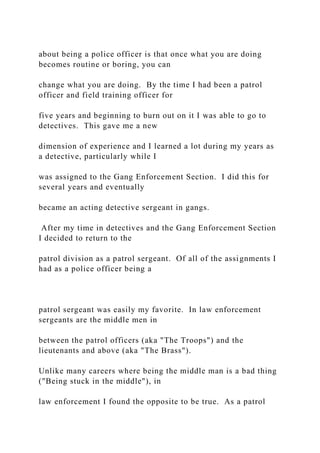
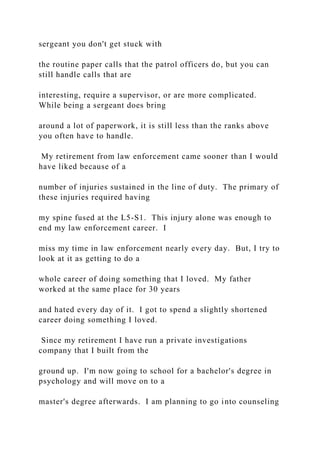
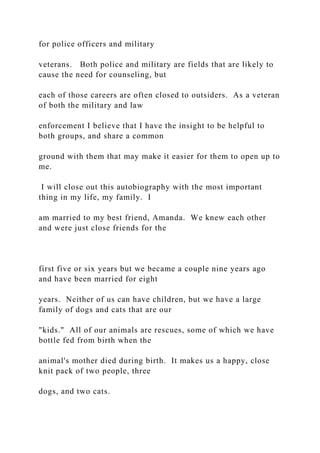
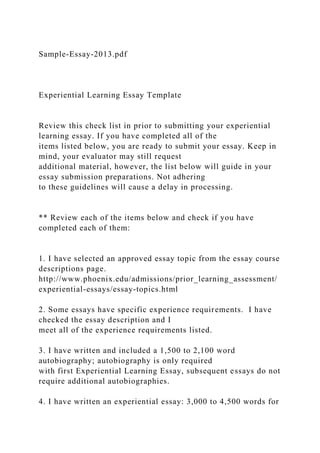
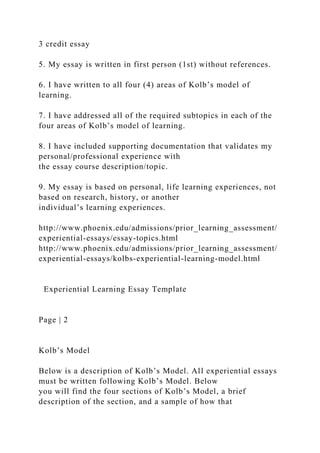
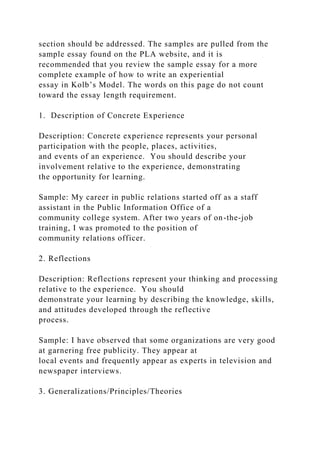
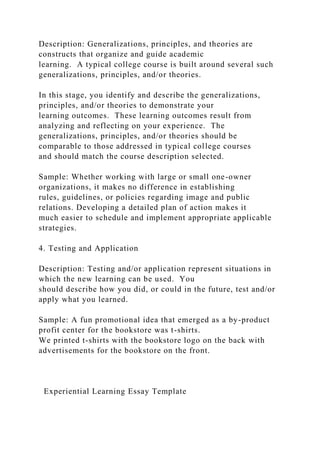
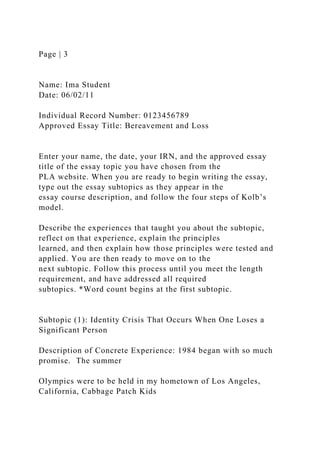
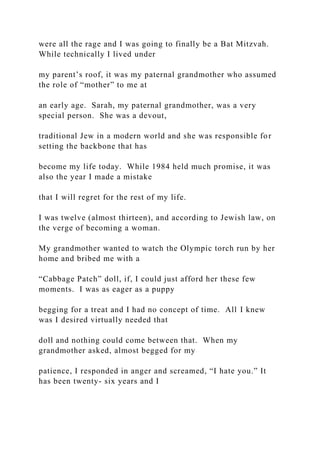
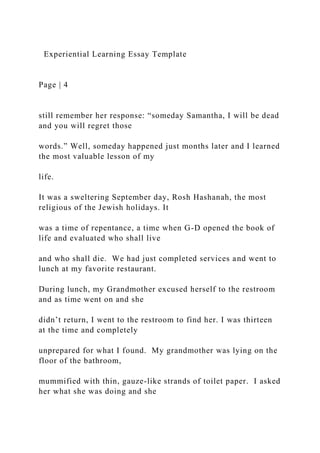
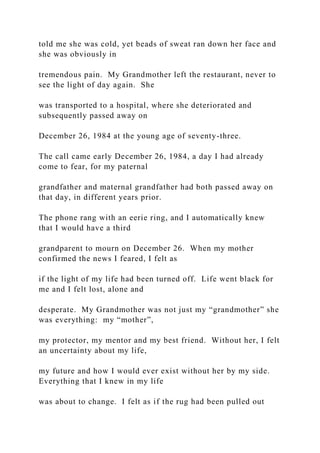
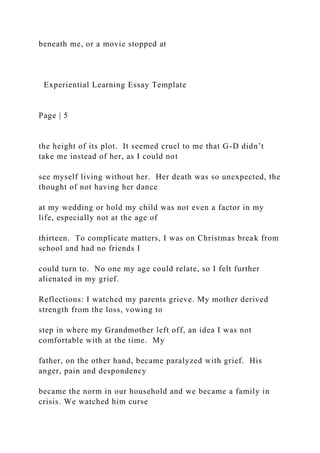
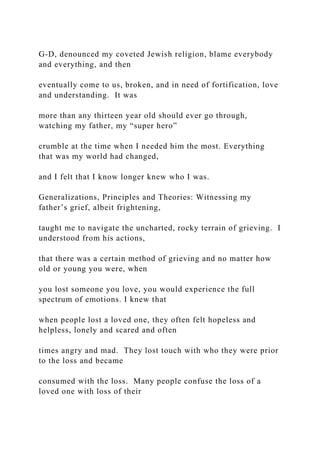
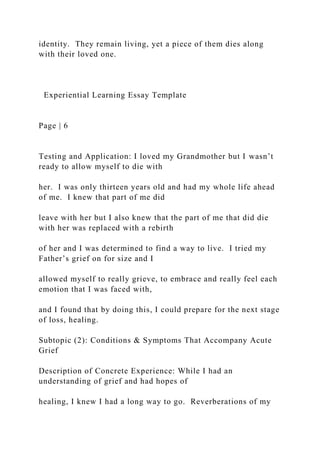
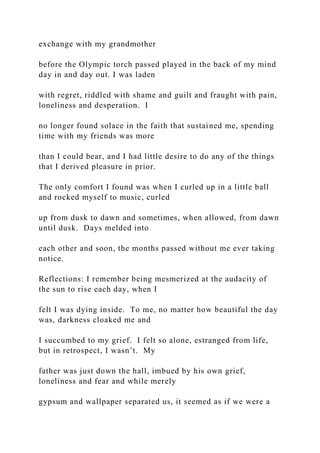
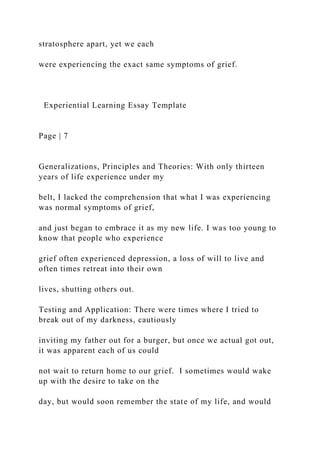
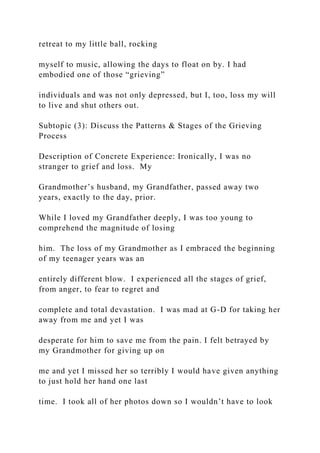
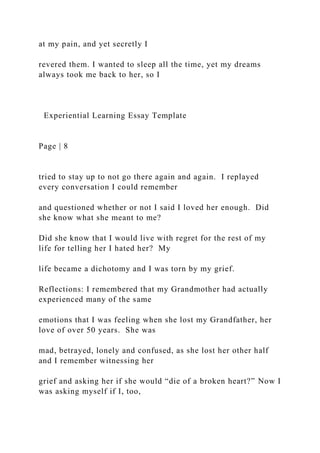
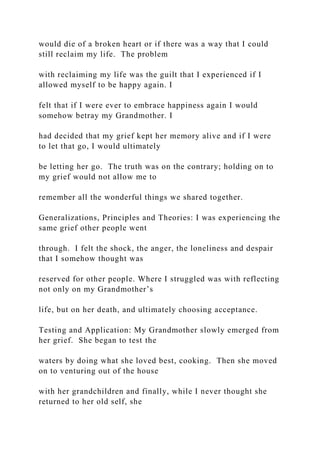
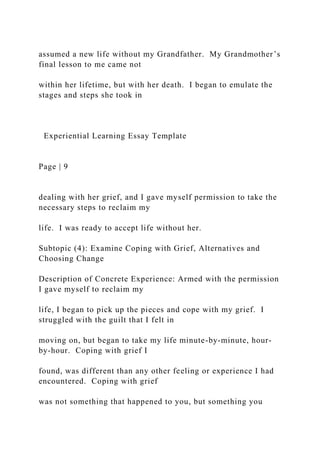
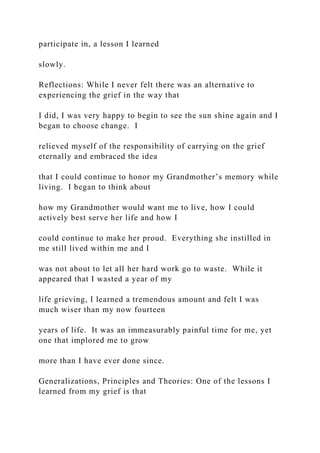
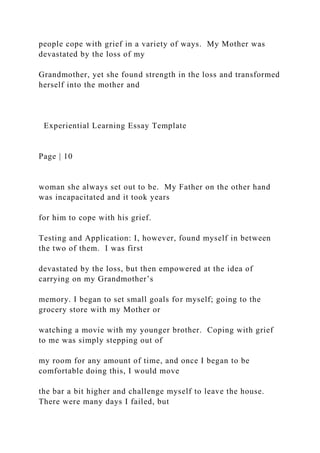
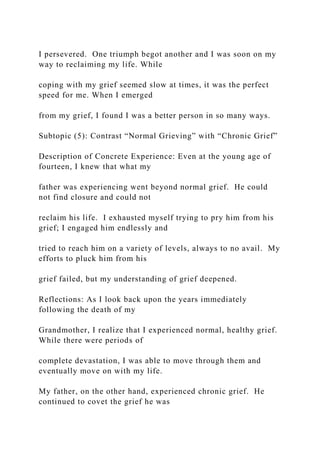
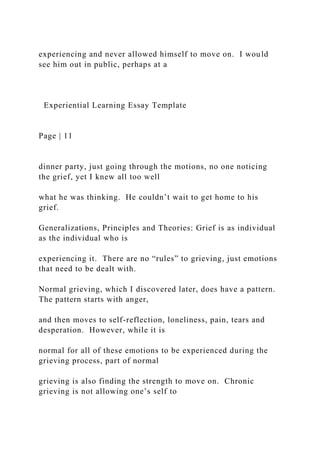
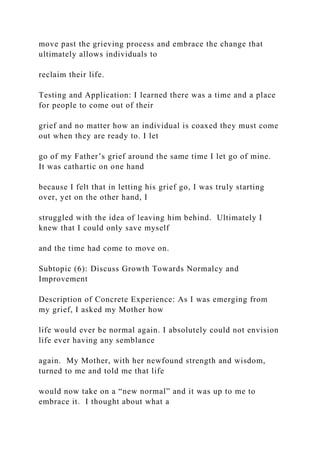
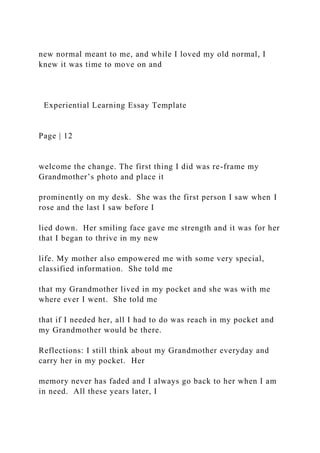
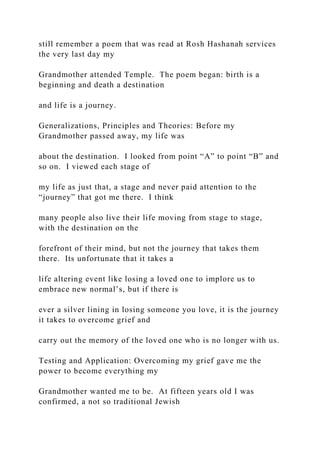
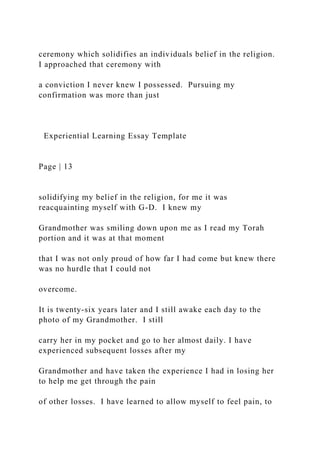
![experience each and every
emotion and then give myself permission to move forward. The
short thirteen years that I was
blessed to have my Grandmother pale in comparison to the
lifelong lessons that my
Grandmother taught me in her death. While birth is the
beginning and death is the destination, it
is how we live the journey that makes the difference. My
Grandmother’s death taught me to live
my life and embrace the journey. It is this lesson that allowed
me to forgive myself for telling
her that I hated her and has freed me to become the woman that
I know she would have been
proud of.
Three-Credit-Essay-Template[1].doc
Experiential Learning Essay Template
Experiential Learning Essay Template
Review this check list in prior to submitting your experiential](https://image.slidesharecdn.com/sample-autobiography-221107172036-d1c22ca6/85/Sample-Autobiography-pdfAutobiography-My-name-is-Mich-docx-34-320.jpg)
